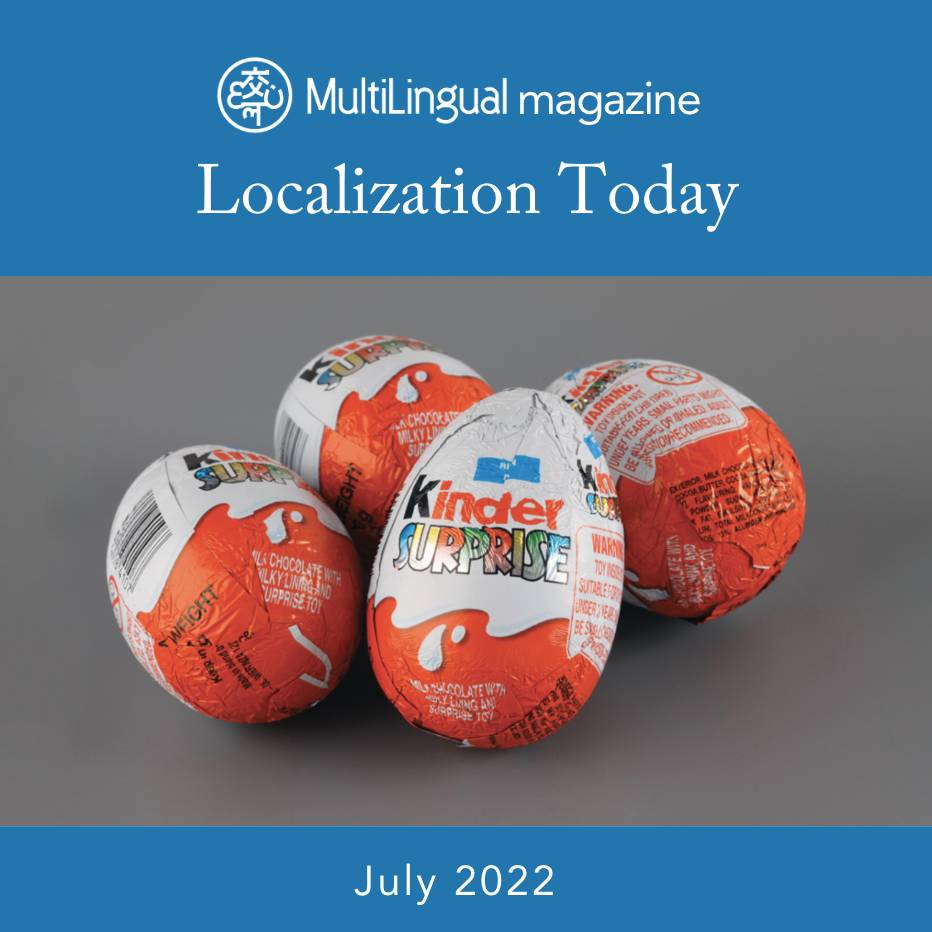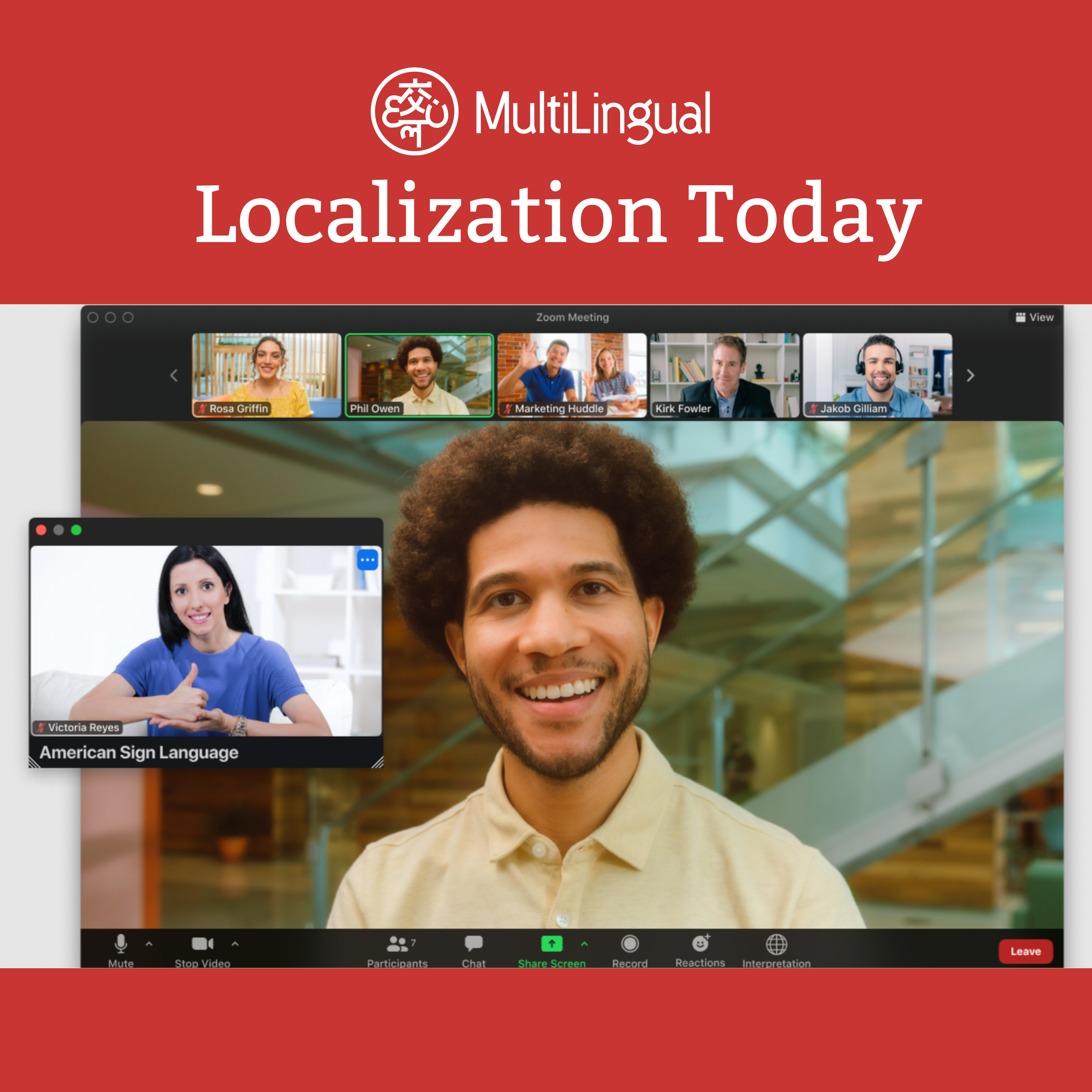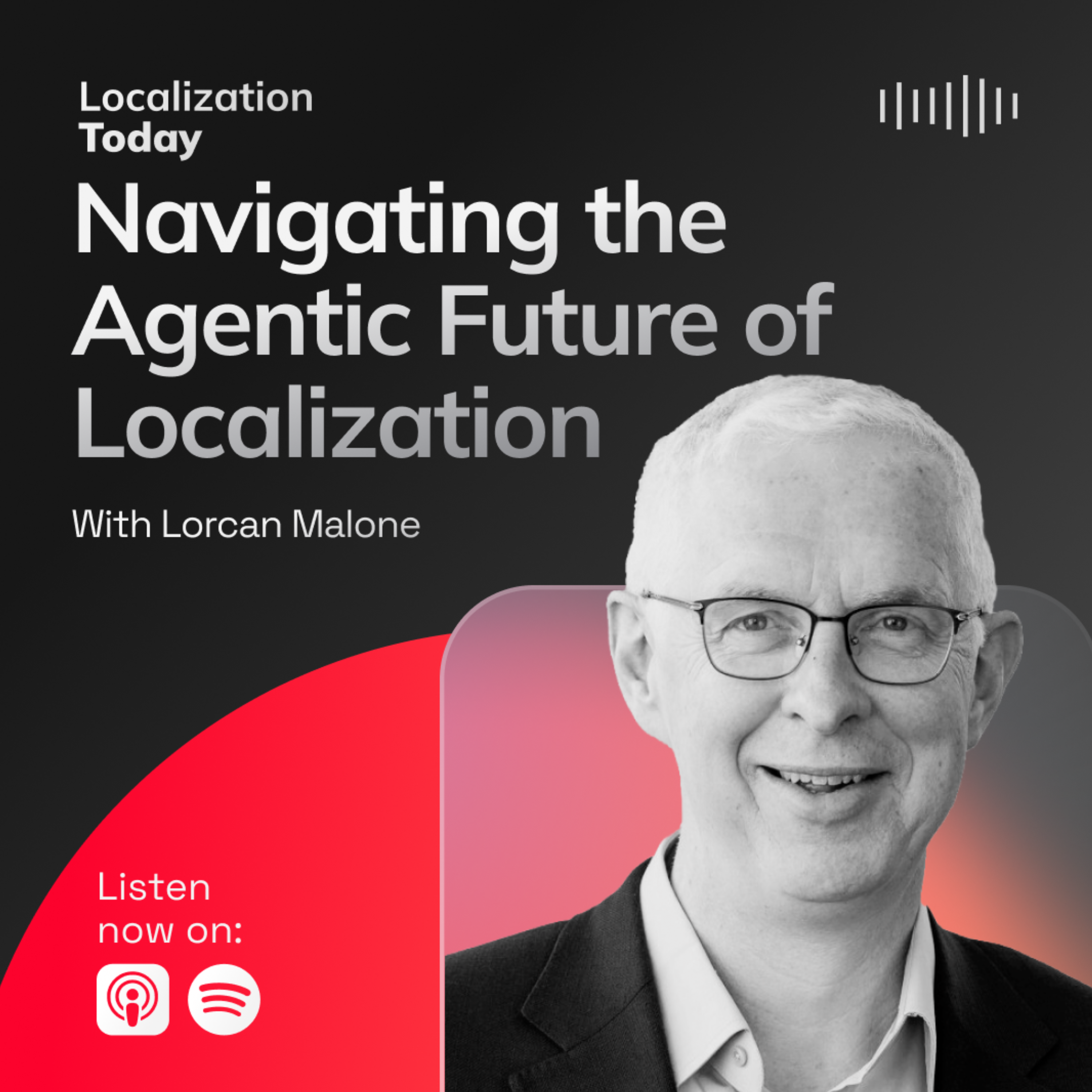Episode Transcript
[00:00:00] The Decline of Language Learning in US Higher Education A Call to Action for the Localization Industry, by Mimi Moore and Carrie Fisher Higher education language learning in the United States has been gradually declining for years, but a November 2023 report from the Modern Language association of America shows just how steep the declines are. The MLA found that college and university enrollments in courses for languages other than English fell 16.6% from 20.
[00:00:34] An article titled Cratering Language Enrollments Reveal America's Linguistic Divide by Steve Levine, founder of the America the Bilingual project, analyzes the MLA's findings. It states that over the last 12 years of data, language course enrollment declined more in two year community colleges minus 44.3% than in four year colleges and universities minus 24.8%. Public universities have experienced the greatest impact minus 17.5% since 2016 compared to private universities minus 7.8% since 2016.
[00:01:16] These numbers reveal a startling domino effect. With fewer students enrolling in language classes, fewer classes and language options are offered and fewer educators are needed to teach language classes.
[00:01:29] For students growing up in an English speaking home who want to study a second language, they are finding fewer opportunities in school to do so. As language enrollment declines, language teaching programs are feeling the impact.
[00:01:42] From 2008 to 2009 until 2015-16, according to research from Bowling Green State University, enrollment in these programs fell almost 38% in states reported more teacher shortages in languages than any other subject.
[00:01:58] In many districts, this need for language teachers was only made worse by the COVID 19 pandemic. The decline in foreign language learning could create a crisis for the localization industry, where our workforce depends on employees with a linguistically diverse background.
[00:02:14] As the number of students studying languages continues to decline, finding workers who understand the nuances of language will become more challenging. We believe this trend will have a strong impact on the language services industry in the form of a worker shortage.
[00:02:30] At some point, companies will have to look outside the US And Americans will be less competitive in the global market.
[00:02:37] Where is the next generation of localizers going to come from if the US doesn't promote language learning in its education system? In this article, we'll explore some reasons for the decline in language learning, offer a few solutions, and extend a call to action to our industry to start turning the tide. Cultural and Educational Shifts the reality of studying a language is that to become proficient, thousands of hours of study are needed to build a vocabulary and comfort with the language.
[00:03:06] The hard work required for proficiency combined with an English monoculture has made language learning in US Schools a lower priority. Levine cites the misconception that people will speak English wherever you go in the world, or that AI or apps like Google Translate will make language learning obsolete as another reason for the decline.
[00:03:26] In this vein, foreign language students are often frustrated learning vocabulary that they think they will never use. The rise of science, technology, engineering, and math programs in the early 2000s has also contributed to the decline in foreign language study in the US STEM has been pushed very strongly, signaling to parents that future career opportunities for their kids exist in these fields and less so in languages because parents and educators aren't informed about what someone can do with a language degree. What are you going to do with a language degree?
[00:04:02] Teach Students are not always encouraged to study languages. Belinda Hilbert, now a strategic account manager at United Language Group, experienced this future job related anxiety when studying German at Portland State university starting in 2006.
[00:04:19] As a student, I was always asked by friends or family what I was going to do with my German degree, she says.
[00:04:26] I felt genuinely stressed. Even though I was studying something I loved, I didn't know how the skill would translate directly into a job. It was always in the back of my mind. Turning the Tide the Language Connects foundation is one organization working to help retain current language teachers and encourage more students to become language educators.
[00:04:50] The LCF raises funds, offers scholarships, and gives microgrants to language educators so they can give their students a better foreign language classroom experience without using their own money to supplement classroom activities and supplies.
[00:05:03] LCF also has a Student Ambassador program to evangelize language learning. Career advisors play an important role in spreading awareness about students postgraduate options.
[00:05:15] Winnie He, a career advisor for the Translation, Interpretation and Localization Management Program at Middlebury Institute of International Studies, helps her students identify, explore, and land career oriented jobs in the language services field.
[00:05:33] She and her colleague Adam Wooten volunteer for the academic outreach initiative ALC bridge, regularly presenting to undergraduate students about language career options and inviting faculty from other universities to visit MIIs.
[00:05:47] He also created a graphic called the Ecosystem of Language Professionals that shows the diversity of careers available in the localization industry. When I became a career advisor after working in the language industry for 25 years, one of the first questions I asked my students was, what are your career aspirations?
[00:06:06] The vast majority told me they wanted to work as a translator or interpreter at the United nations or as a localization project manager at a large tech firm, he says.
[00:06:17] I knew they had far more options than this.
[00:06:20] I wanted to do my part to expand their thinking. Finally, language courses could focus more on specialized vocabularies that have real world career applications.
[00:06:30] For example, language classes that focus on medical terminology could help future health professionals see a real world application for the language they are learning. Making a Difference in the UK, the RWS Foundation, a charitable trust backed by localization industry leader rws, has taken concrete steps to make a difference in the United Kingdom, which faces similar language learning declines, offering a model for other countries like the US in 2019, the RWS foundation launched the RWS Broad Scholarship Program with the University of Manchester in response to declining language education enrollment and the industry's need for language professionals.
[00:07:13] Named after former RWS Chairman Andrew Broad, the scholarship encourages students to complete a degree in modern languages and provides employment and training opportunities.
[00:07:23] Given RWS's position as a significant employer of language graduates, Andrew Broad recognized the importance of nurturing the next generation of language specialists, says David Shrimpton, chairman of the RWS Foundation.
[00:07:38] He believed that RWS had a responsibility to encourage students to consider language degrees and to support those who may not have the financial means to complete their studies. Since its launch, over 50 students have been supported by the scholarship program. In 2023, the first group of RWS Broad scholars completed their studies and 52 scholarship recipients are currently studying at the university.
[00:08:03] The RWS foundation has pledged to support another 18 students who began their studies in September 2024. The scholarship students benefit from a mentoring program that offers the opportunity to speak directly with RWS language professionals.
[00:08:20] This year, 16 scholarship students are being mentored in areas such as roles and opportunities in localization, career development, networking, interviewing, and more. The mentoring program was very useful, says one of the scholarship students.
[00:08:35] Talking to someone with real life experience of the job I am striving for has made it seem more achievable and helped me realize ways I can start working toward it. RWS Campus is another way. RWS is investing in future language professionals and supporting the direction of the industry through its free partnerships with more than 700 universities in over 80 countries. RWS shares professional expertise with students and lecturers to bridge the gap between academia and the workplace.
[00:09:05] This program provides university partners with free access to the latest Trados technology for classroom teaching so students can learn in a way that mirrors the workplace, both in person and remote. Internships are a part of the RWS campus program, said Shrimpton.
[00:09:21] Interns work in various localization roles, which allows them to develop key skills and on the job training.
[00:09:28] We host online events, workshops and lectures and attend university job fairs to help students learn about the localization industry.
[00:09:37] In 2023, we held over 100 events in more than 30 countries and connected with over 2000 students. Getting involved to start bringing about change in the U.S. more localization companies and professionals should get involved through mentoring and outreach, such as speaking to students and faculty at your local high schools and universities, or spreading the word about organizations like LCF and ALC bridge.
[00:10:03] Contacting your local educational institutions and offering to speak to a class about the localization industry can make a difference.
[00:10:11] To further this initiative, a group called Supporting and Preserving Language Education in America Coalition is preparing presentation templates, blogs, and other content to help localization professionals get started with academia outreach. When a student shows interest in the localization industry, it's important to provide them with resources to help them learn more. We recommend sharing a free series on LinkedIn called Localization Explained by Marina Grayson Farrell. Localization user groups such as the San Francisco Bay Area IMUG Group offer professional development and networking opportunities.
[00:10:50] LOC Lunch can be found in major cities and is a good way to meet people.
[00:10:55] And finally, Women in Localization offers its members webinars, networking events and a mentorship program. If a student wants to learn a language but doesn't have access to a program for that language, we suggest contacting your state representatives about starting a program.
[00:11:11] The American Council on the Teaching of Foreign Languages offers resources that can help on their website.
[00:11:20] You can also inform students about the many apps and software programs that teach languages, tell them about local language clubs, or help them hire a tutor.
[00:11:29] Online resources like meetup and Reddit have online communities with language conversation groups. Ultimately, we need to help parents and students understand how important being exposed to different languages really is. It starts with a grassroots movement like the one we're embarking on, and it continues with constant education.
[00:11:49] We encourage everyone to get involved today to start making change.
[00:11:54] This article was written by Mimi Moore, owner of Netherlands based Wolfsen House Writing, a content marketing agency for LSPs, language technology companies and B2B technology companies. She has 25 years of experience in the localization industry and is Program Manager, Content and Social Media for Women in Localization and Carrie Fisher, Globalization Services Manager at Subway, and has three decades of experience in the localization industry.
[00:12:23] She is Women in Localization's Board sponsor of Global Growth and Diversity, originally published in Multilingual Magazine Issue 233 10-20-24.


